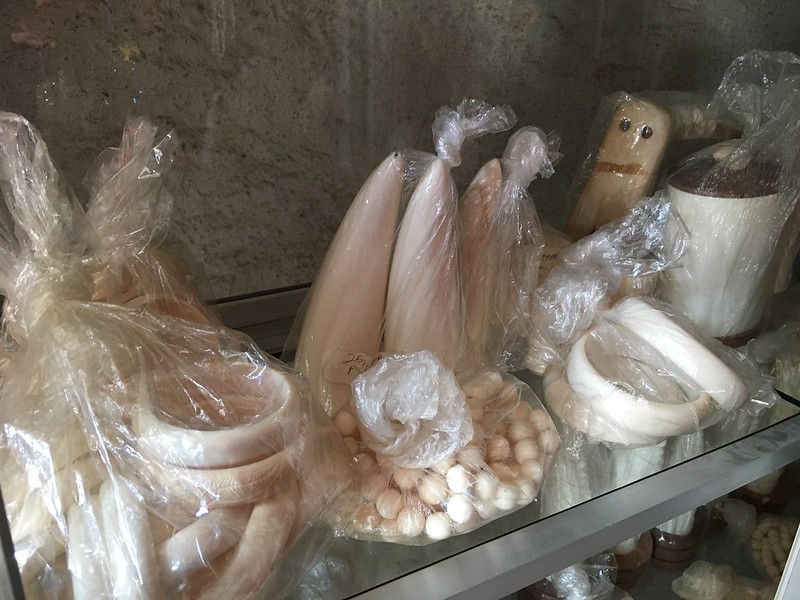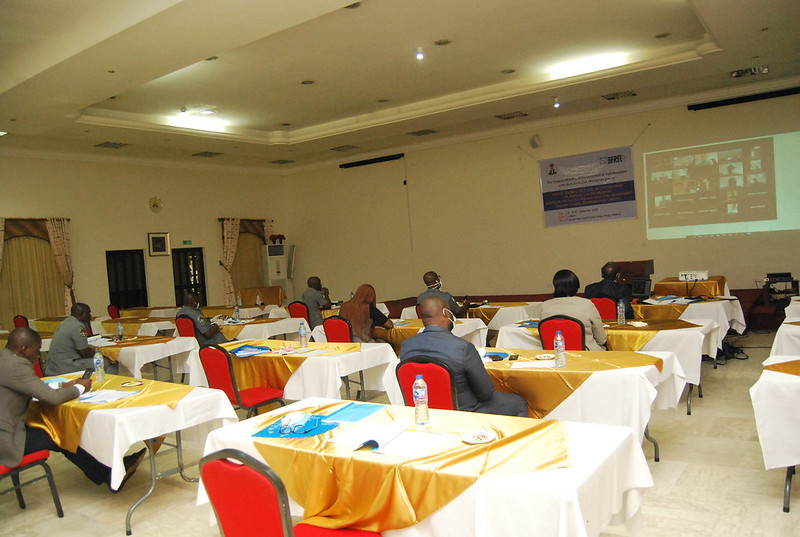Nigeria is widely considered a key West African wildlife trafficking hub. Its large international airport, with connecting routes to destinations across the world, makes it an ideal site for wildlife traffickers looking to move illicit products across the globe. According to a 2019 report, between 2016 and 2018, Nigeria was the West African nation with the most illegal wildlife seizures, with ivory, pangolins, and other mammals the most commonly seized wildlife products in the country.
Despite the country’s key position in the international wildlife trade, Nigerian authorities are taking concrete steps to clamp down on illicit trafficking.
During a virtual event for World Wildlife Day 2021, organized by the Nigeria National Park Service, Nigeria unveiled a strategic partnership with Germany and the United Nations Office on Drugs and Crime (UNODC) that will allow the country to strengthen its response to the trafficking of wildlife and forest products through the development of Nigeria’s first national strategy to combat wildlife crime.
In addition, another partnership between UNODC and the European Union will assess Nigeria’s legal, institutional, and operational capacities to tackle wildlife and forest crime, which will serve as a basis for the development of the national strategy.
Born Free USA is proud to support Nigeria with the development of its national response to wildlife crime.
In 2017, Born Free USA led the first ever wildlife crime threat assessment in Nigeria, organizing two field missions to better understand the nature of wildlife crime in the country and to develop a comprehensive review of Nigeria’s legal frameworks and policies. Findings from this assessment were validated by national authorities and provided to UNODC for guidance on the development of Nigeria’s strategy for combating illegal wildlife trade.

In 2020, Born Free USA collaborated with the Federal Department of Forestry of Nigeria to provide wildlife law enforcement trainings to 15 customs trainers and 21 judges and prosecutors. Workshops focused on CITES; learning to check if a species is listed under CITES and how to identify key species in illegal trade; the role of customs and profiling at the border; wildlife smuggling techniques, routes, and species targeted; the examination of live animals at the border; and evidence management.

Nigeria’s commitment to countering wildlife crime is paying off! In January 2021, Nigerian customs officers at Apapa Port made an important seizure of wildlife products in a 20-foot container destined for Haiphong in Vietnam. The seizure contained 12,400 lbs. (8,800 kg.) of pangolin scales; 2,772 elephant tusk pieces; 11 lbs. (5 kg.) of rhino horns; dried and fresh animal bones; 425 lbs. (103 kg.) of skulls suspected to be of lions and other wild cats; and 76 pieces of semi-processed and processed timber.
“Born Free USA has worked for years alongside Nigerian authorities to develop law enforcement capacity and a national strategy for countering wildlife crime. We applaud their commitment and hard work, which not only strengthens anti-trafficking measures within Nigeria, but also across the entire West African region.”
Angela Grimes, CEO of Born Free USA
Born Free USA warmly congratulates the authorities of Nigeria for undertaking these important steps to combat wildlife trafficking. We look forward to continuing to work alongside Nigeria’s government and law enforcement agencies to protect wildlife and wild places from exploitation.
Keep Wildlife in the Wild,
Alice
